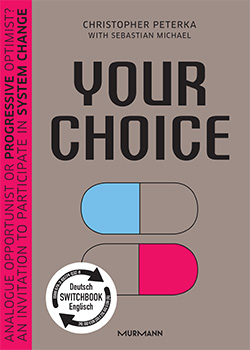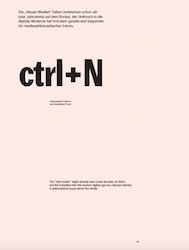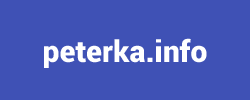Christopher Patrick Peterka (41) is a futurist and humanist with 24 years of practical experience. In 2000 he founded a company for natural language interfaces in human-machine communication. With the think tank gannaca and the NextGen cluster THE HUS.institute, he advises organizations worldwide on their innovation culture and future strategy. He is particularly interested in the new rules in economy and society in the Earth Age of the Anthropocene.
As author, speaker and interview partner Peterka inspires, surprises and provokes. Without regard to proportional representation and status, he focuses on the tectonic plate shift between the "old and new world". He creates context, conveys relevance and kindly encourages reflection. In doing so, he goes to the limits of imagination and feasibility without losing sight of everyday life. For not least as a cyborg and father of two children, he is interested in rapid change and concrete action to keep the world of the 21st century humane.














 „Far-sighted, concerted and highly significant insight for decision makers“
„Far-sighted, concerted and highly significant insight for decision makers“ „You like to hear about the future of communications? Listen to him“
„You like to hear about the future of communications? Listen to him“ „Strategically a visionary - practically a reliable advisor“
„Strategically a visionary - practically a reliable advisor“ „...you impressively contributed to the digital era's introduction at Strabag...“
„...you impressively contributed to the digital era's introduction at Strabag...“ „Thanks for the great lecture“
„Thanks for the great lecture“


